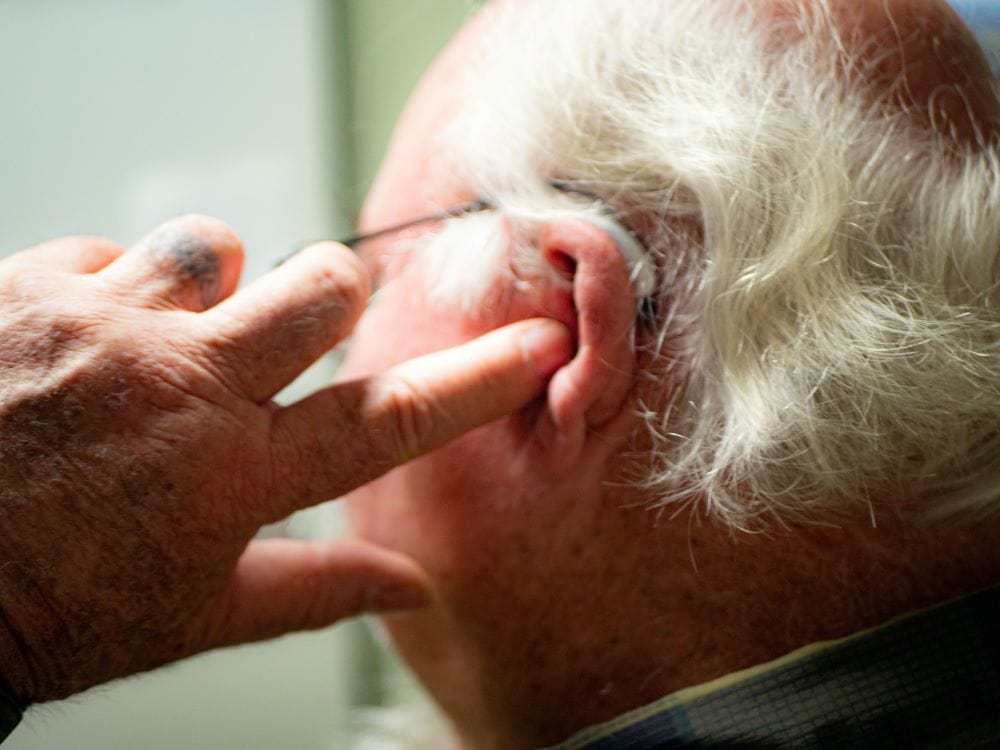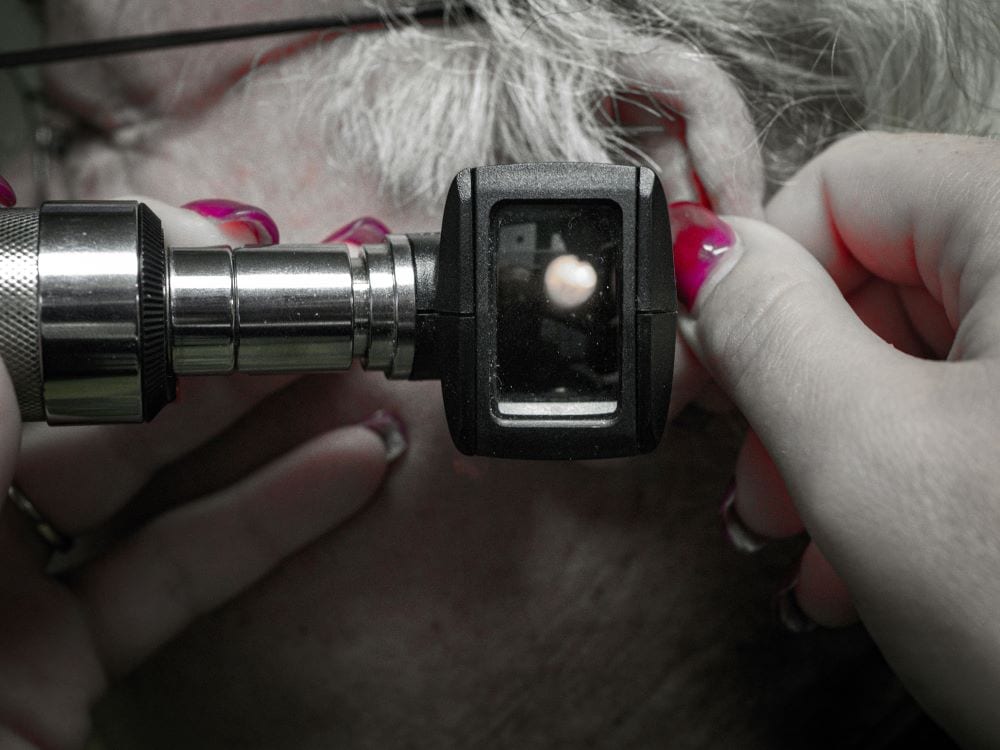
According to a 2018 study of hearing aid users in Singapore, 69.5% of users surveyed (with a mean age of 70) had at least moderate-severe hearing loss, while according to SingHealth, an estimated 1 in 1000 babies born in Singapore face significant hearing impairment at birth. In reality, hearing loss, though often associated with ageing, can affect people of any age, even children.
Individuals born without hearing impairment can also experience hearing loss as they age due to factors such as genetics, construction noise, loud traffic, and crowded spaces – all part and parcel of living in a bustling city like Singapore.
As such, it’s especially important to be aware of what the 3 types of hearing loss are and their symptoms so you can act quickly and pursue the necessary early intervention. Understanding the specific type of hearing loss can even lead to targeted treatment and improved quality of life, helping you optimise your day-to-day routine post-diagnosis.
Conductive Hearing Loss
Conductive hearing loss occurs when there’s a problem with the outer or middle ear, hindering sound waves from reaching the inner ear. This type of hearing loss is often temporary and treatable.
Common causes of conductive hearing loss include:
- Ear infections: These are particularly common in Singapore’s humid climate, especially in children.
- Earwax buildup: A natural substance, but excessive buildup can block the ear canal.
- Perforated eardrum: This can occur due to injury or infection.
- Fluid in the middle ear: Often a result of colds or allergies, this can muffle sound.
Symptoms of conductive hearing loss to look for:
- Muffled hearing.
- Sudden or gradual hearing loss.
- Pain or discharge from the ear.
- Difficulty hearing soft sounds.
Fortunately, conductive hearing loss often responds well to treatment. Depending on the cause, this may include:
- Medical treatments: Antibiotics and other suitable medications can be used to treat ear infections, while earwax removal can help to manually remove earwax blockages.
- Surgical options: Tympanoplasty (eardrum repair) or myringotomy (tubes inserted to drain fluid) are some surgical options available for dealing with conductive hearing loss.
- Hearing aids and assistive devices: Assistive devices can be beneficial in some cases of conductive hearing loss; a trained audiologist or hearing care consultant in Singapore will be able to advise on your suitability for hearing aids.
Sensorineural Hearing Loss
Sensorineural hearing loss is the most common type and involves damage to the inner ear or the auditory nerve. This type is usually permanent but can be managed effectively, enabling the individual to lead a regular life. In some instances, sensorineural hearing loss can affect both ears, which is known as bilateral sensorineural hearing loss. If this bilateral hearing loss worsens over time, it is classified as progressive bilateral hearing loss.
Common causes of sensorineural hearing loss include:
- Age-related hearing loss (presbycusis): Hearing loss is a natural part of ageing.
- Noise exposure: Loud concerts, construction sites, or even prolonged headphone use can contribute to hearing loss, especially in a busy city like Singapore.
- Genetic factors: Some people are predisposed to hearing loss.
- Head trauma or illness: Certain illnesses and injuries can permanently damage the inner ear.
Symptoms of sensorineural hearing loss to look out for, particularly if you have genetic or lifestyle-related risk factors, include:
- Difficulty understanding speech, particularly in noisy environments.
- Tinnitus (ringing in the ears).
- Gradual loss of high-frequency sounds.
- Problems with balance.
While sensorineural hearing loss is usually permanent, various options can improve hearing and quality of life. This includes:
- Hearing aids: These amplify sounds to make them easier to hear.
- Cochlear implants: These surgically implanted devices can be life-changing for people with severe to profound hearing loss.
- Regular hearing tests: Going for regular hearing checks is essential for monitoring hearing health and adjusting treatment as needed.
- Support services: Singapore offers various support groups and resources to help individuals manage sensorineural hearing loss.
Mixed Hearing Loss
Mixed hearing loss, as its name suggests, is a combination of conductive and sensorineural hearing loss. It requires a comprehensive approach to diagnosis and treatment.
Causes of mixed hearing loss vary and include aspects of both conductive and sensorineural hearing loss. For example, a genetic predisposition to sensorineural hearing loss coupled with noise exposure leading to conductive hearing loss. Mixed hearing loss can also be exacerbated by factors such as chronic ear infections, trauma and injury to the ear, or ageing.
Symptoms of mixed hearing loss are typically a combination of symptoms from both conductive and sensorineural hearing loss. This can include:
- Difficulty hearing in all environments, quiet and noisy.
- Fluctuating hearing levels.
If you suspect you have mixed hearing loss, comprehensive evaluation by an audiologist or hearing care consultant is essential. Treatment may involve a combination of medical and audiological interventions, ranging from customised hearing aids to specialised surgical options, depending on the specific causes and severity of the hearing loss.
When to Seek Help for Hearing Loss
Early detection of hearing loss—whether conductive, sensorineural, or mixed—is crucial for effective treatment. Watch out for these signs of hearing loss in yourself or loved ones:
- Asking people to repeat themselves frequently.
- Turning up the volume on the TV or radio.
- Difficulty following conversations in noisy environments.
- Feeling withdrawn or isolated due to hearing difficulties.
If you notice these signs in yourself or a loved one, don’t hesitate to seek professional help immediately.
What to Expect When Seeking Help for Hearing Loss
Across all three types of hearing loss, early intervention is key to managing treatment outcomes effectively. If you suspect you or a loved one may be experiencing hearing loss, don’t delay in seeking help.
At The Hearing Solution Group, we are dedicated to providing comprehensive hearing care services in Singapore. We offer a wide range of hearing aids, including Unitron and Phonak devices, as well as free hearing checks to help you understand your hearing health.
We recognise that hearing loss can be scary and intimidating, which is why our team of experienced audiologists and care consultants will guide you through every step of the journey, from diagnosis to treatment and ongoing support. During an initial consult and assessment, an audiologist or hearing care consultant will conduct a thorough hearing test to assess your hearing abilities. They’ll also discuss your medical history and lifestyle to understand your specific needs. Based on the results, they’ll recommend the best course of action, which may include hearing aids, assistive devices, or other treatment options. Our support also extends to post-treatment, such as advice on hearing aid care and maintenance.
Don’t let hearing loss hold you back. Take the first step today towards a clearer, more connected world. Contact The Hearing Solution Group to schedule your free hearing check and how we can help you improve your hearing and regain quality of life.

 Find Us
Find Us Call Us
Call Us
